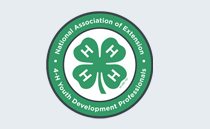Abstract
Almost 10% of American youth are diagnosed with attention deficit hyperactivity disorder (ADHD). While not a learning disability, this diagnosis results in youth being labeled academically “at-risk.” While equine assisted services (EAS) promote an emotionally safe learning environment for at-risk youth, program availability is limited. Horse breed associations, however, offer programs nationwide for all youth, although these programs do not have a therapeutic intention. Therefore, the objectives of this study were to utilize a survey to determine program participation and associated development of life skills and goals for ADHD youth. A survey was developed with the following: 15 fixed-response multiple-choice questions, one question formatted as a rating scale concerning development of 10 life skills, and an open-ended response section for feedback concerning the survey and the programs. Participants (n = 58) included the following: 1) parents of ADHD youth who had participated or were participating in breed association youth activities or 2) individuals with ADHD who had participated as a youth in these activities. The majority participated in these programs >10 years (71%) utilizing multiple horses (3–5 horses: 38%). Investment within these programs (>$40,000: 86%) exceeded financial returns ($3,000–$5,000: 33%). The majority of respondents were in agreement that these programs had impacted academic (“Definitely Yes”: 69%) and career (“Somewhat Yes”: 67%) goals. All of the life skills improved with participation with “respect” having the highest rating. While EAS has shown promise for ADHD youth, breed association youth programs may be a complementary approach in working with these youth.
Recommended Citation
Culwell, Julius; Foster, Makenna; Nicodemus, Molly Christine; Friend, Molly; Evans, Holly; Jousan, Dean; Holtcamp, Katherine Agbigail; Cavinder, Clay; and Williams, Toree
(2024)
"Do Horse Breed Association Youth Programs Promote Life Skills and GoalDevelopment for Youth with Attention Deficit Hyperactivity Disorder?,"
Journal of Youth Development: Vol. 19:
Iss.
4, Article 8.
Available at:
https://open.clemson.edu/jyd/vol19/iss4/8
Included in
Child Psychology Commons, Civic and Community Engagement Commons, Community-Based Learning Commons, Developmental Psychology Commons, Leadership Studies Commons



